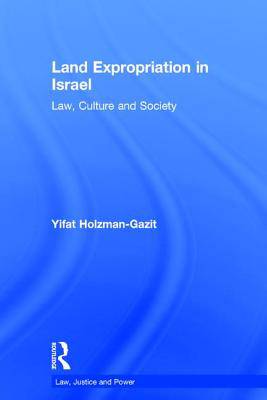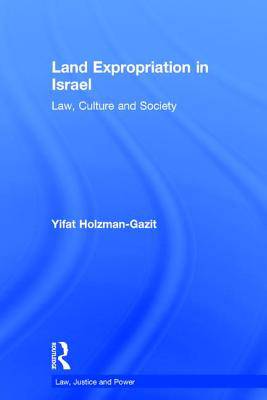
Je cadeautjes zeker op tijd in huis hebben voor de feestdagen? Kom langs in onze winkels en vind het perfecte geschenk!
- Afhalen na 1 uur in een winkel met voorraad
- Gratis thuislevering in België vanaf € 30
- Ruim aanbod met 7 miljoen producten
Je cadeautjes zeker op tijd in huis hebben voor de feestdagen? Kom langs in onze winkels en vind het perfecte geschenk!
- Afhalen na 1 uur in een winkel met voorraad
- Gratis thuislevering in België vanaf € 30
- Ruim aanbod met 7 miljoen producten
Zoeken
€ 190,95
+ 381 punten
Uitvoering
Omschrijving
Historically, Israel's Supreme Court has failed to limit the state's powers of expropriation and to protect private property. This book argues that the Court's land expropriation jurisprudence can only be understood against the political, cultural and institutional context in which it was shaped. Security and economic pressures, the precarious status of the Court in the early years, the pervading ethos of collectivism, the cultural symbolism of public land ownership and the perceived strategic and demographic risks posed by the Israeli Arab population - all contributed to the creation of a harsh and arguably undemocratic land expropriation legal philosophy. This philosophy, the book argues, was applied by the Supreme Court to Arabs and Jews alike from the creation of the state in 1948 and until the 1980s. The book concludes with an analysis of the constitutional change of 1992 and its impact on the legal treatment of property rights under Israeli law.
Specificaties
Betrokkenen
- Auteur(s):
- Uitgeverij:
Inhoud
- Aantal bladzijden:
- 218
- Taal:
- Engels
- Reeks:
Eigenschappen
- Productcode (EAN):
- 9780754625438
- Verschijningsdatum:
- 28/11/2007
- Uitvoering:
- Hardcover
- Formaat:
- Genaaid
- Afmetingen:
- 156 mm x 234 mm
- Gewicht:
- 476 g

Alleen bij Standaard Boekhandel
+ 381 punten op je klantenkaart van Standaard Boekhandel
Beoordelingen
We publiceren alleen reviews die voldoen aan de voorwaarden voor reviews. Bekijk onze voorwaarden voor reviews.









